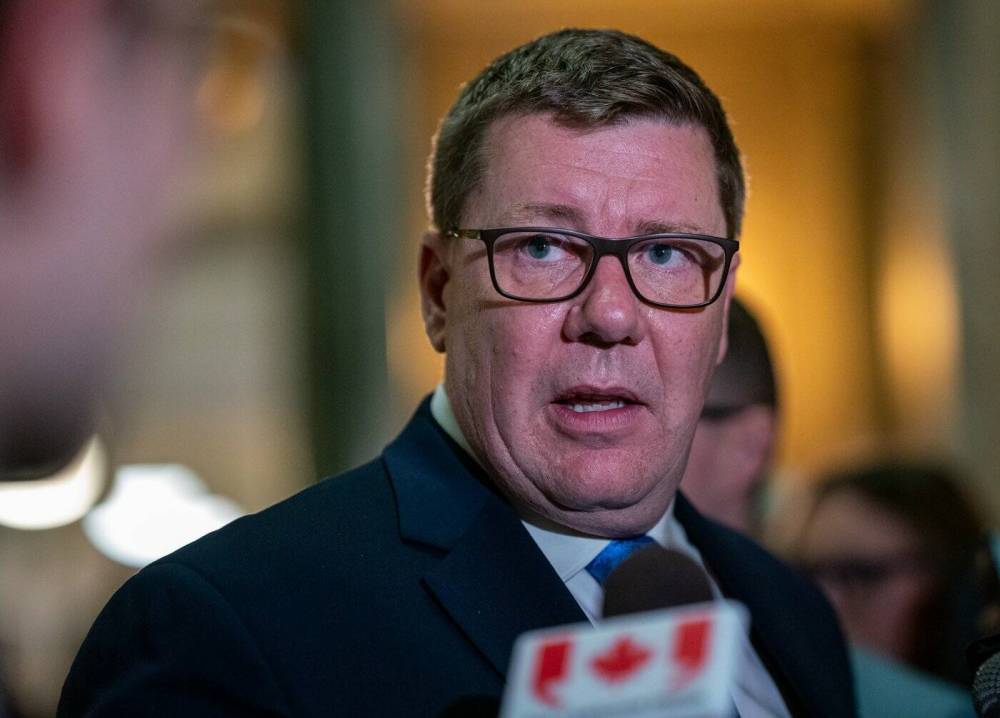
Last week, an interim injunction halted a Saskatchewan government plan to require schools to get permission from parents if a student wanted to use a different name.
What the injunction was being sought to halt was a piece of education policy called “Use of Preferred First Name and Pronouns by Students.” The policy “requires parental or guardian consent when a student under the age of 16 requests that their ‘preferred name, gender identity, and/or gender expression be used…’” according to court documents.
As the injunction hearing heard, it took all of four days for the Saskatchewan government to come up with its policy, after it received 18 letters. The provincial witnesses could not even say if the letters came from Saskatchewan parents. The government provided no evidence that it discussed the proposed with anyone before implementing it. Nor did the government provide evidence that it had sought legal advice on the matter.
HEYWOOD YU / THE CANADIAN PRESS Saskatchewan Premier Scott Moe
In other words, it looks a lot like they chose to lose.
Premier Scott Moe’s reaction? Bring out the big guns.
Did he challenge any particular aspect of the court decision? Or wait for the full case testing whether the policy violates the Canadian Charter of Rights and Freedoms to actually have its day in court next month?
That would have been the easiest approach, but no. No, he just labelled the injunction “judicial overreach” minutes after it was delivered.
Moe went all the way in — saying that, in this situation, he’ll bring in the change even if that meant the Charter rights of some Canadians being denied in Saskatchewan.
Moe said he’d bring in legislation using the notwithstanding clause — which allows provincial governments to suspend charter rights for up to five years —to enforce his policy, even if that policy could cause irreparable harm to transitioning youth. (Oddly, by announcing he’s invoking the clause, he’s essentially admitting his policy would violate Canada’s human rights code.)
It would be wonderful if everyone was involved in the issues surrounding a transitioning youth: in fact, in the application, all of the groups seeking the injunction “recognize the importance of parental involvement and support in a young person’s experience with their name, pronoun, and gender identification,” the judge wrote.
They’re not: in fact, evidence at the injunction hearing spelled out that, “lower levels of family understanding and acceptance, and troublingly high levels of family violence experienced by gender diverse youth …unfortunately contradict the assumption that all parents are safe and must give consent for gender diverse young people to have their identity supported at school.”
The judge merely had to be convinced that there is a risk of irreparable harm from not halting the government’s policy.
And, at this point, he was.
Keep in mind, the waters around the concept of parental rights are muddy: many people assume that’s about helping parents to know, and have input into, what their children are being taught.
But many those policies have been in place for years: you have to grant permission before your children are photographed in school, you’re advised who’s coming to speak to classes and can have your children sit out the presentation. With the internet, things like curriculum and class goals and resources are widely available. If you’re an attentive parent, you already know that. (If it’s news to you, perhaps you need to pay a little more attention.)
And this is not about help. It’s about harm.
What this particular case was about was getting the government to temporarily halt a process that was deemed by a judge to be harmful to a minority of a minority of people — transitioning youth.
Which Premier Scott Moe felt he had to deal with by choosing the largest weapon in Canada’s constitutional arsenal.
That’s what overreach truly looks like.


